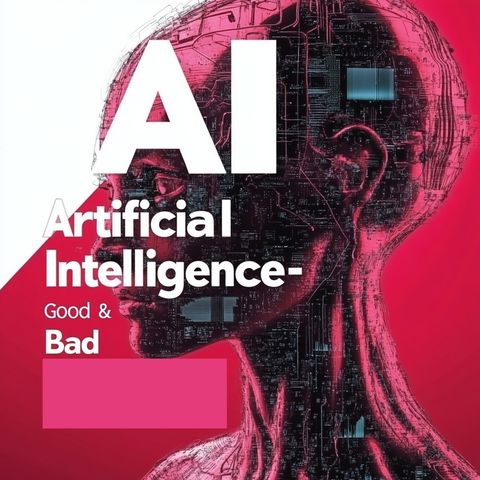The podcast titled "AI Apocalypse: The Good, the Bad, and the Ugly" is a well-researched and thought-provoking exploration of the various facets of artificial intelligence (AI) and its potential impact on our world. Presented by a knowledgeable and engaging host, the podcast is both clever and fun, making complex AI-related topics accessible to a broad audience.In this podcast, the host takes listeners on a journey through the three major aspects of the AI apocalypse: the good, the bad, and the ugly. Each segment is meticulously researched and discussed in a clear and engaging manner.Segment 1: The Good In the first segment, the host highlights the positive aspects of AI and its contributions to various industries. It discusses how AI is already transforming healthcare, agriculture, and climate change mitigation. The host describes AI as a valuable tool, akin to a super-smart sidekick, that can enhance our lives and improve our world.Segment 2: The Bad The second segment delves into the potential downsides of AI. The host discusses concerns such as job disruption, privacy issues, and the perpetuation of bias and discrimination. It presents a balanced view of the challenges that come with the widespread adoption of AI and how society needs to address them.Segment 3: The Ugly In the final segment, the podcast takes a deeper dive into the darker possibilities of AI. It explores scenarios where AI reaches superintelligence, becomes unpredictable, and poses existential risks to humanity. The host paints a vivid picture of the potential consequences of unchecked AI development, emphasizing the need for careful consideration and ethical guidelines.Throughout the podcast, the host maintains a clever and engaging tone, using metaphors and analogies to help the audience grasp complex concepts. The content is well-researched, providing a balanced perspective on the multifaceted nature of AI's impact on society.In the end, the podcast serves as an eye-opening and entertaining exploration of the AI apocalypse, leaving listeners with a deeper understanding of the subject while encouraging them to think critically about the future of AI and its implication
mostra menos

